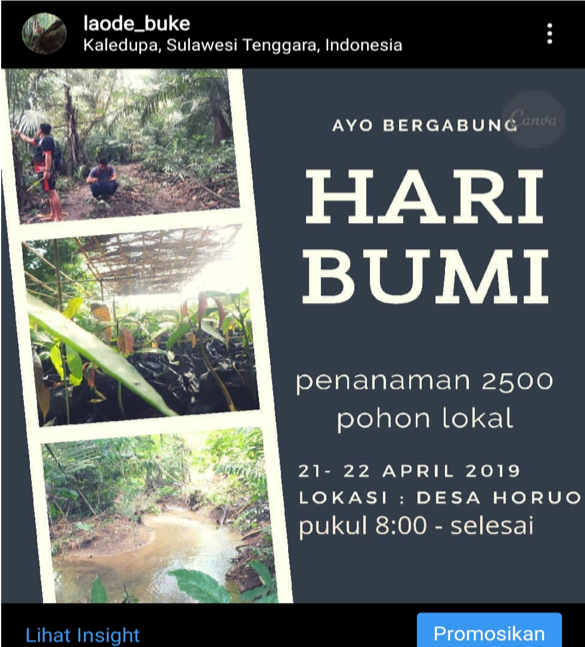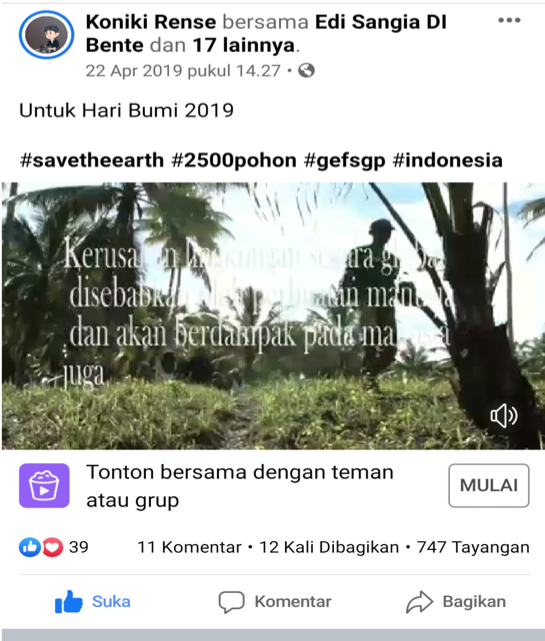Toudani Institute
PROJECT IMPLEMENTATION DESCRIPTION
Maintaining and increasing areas of protected forest cover, customary forests, and improving sustainable resource utilization practices.
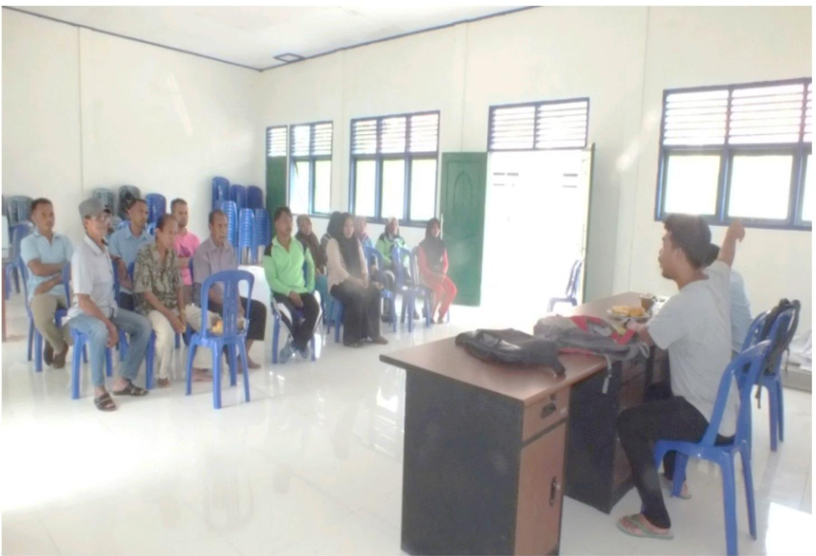
FGD with land owners regarding plans to plant trees in water source areas and riverbanks.
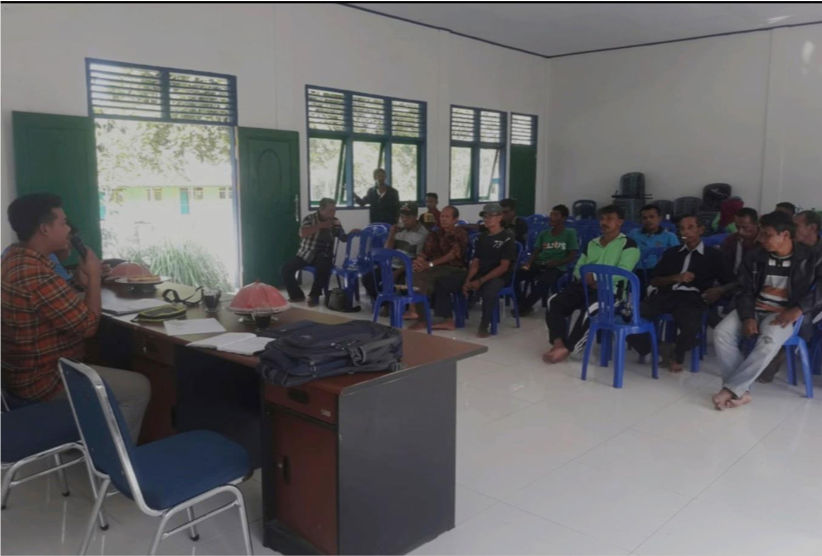
Village discussion regarding the agreement to plant trees in water source areas and riverbanks.
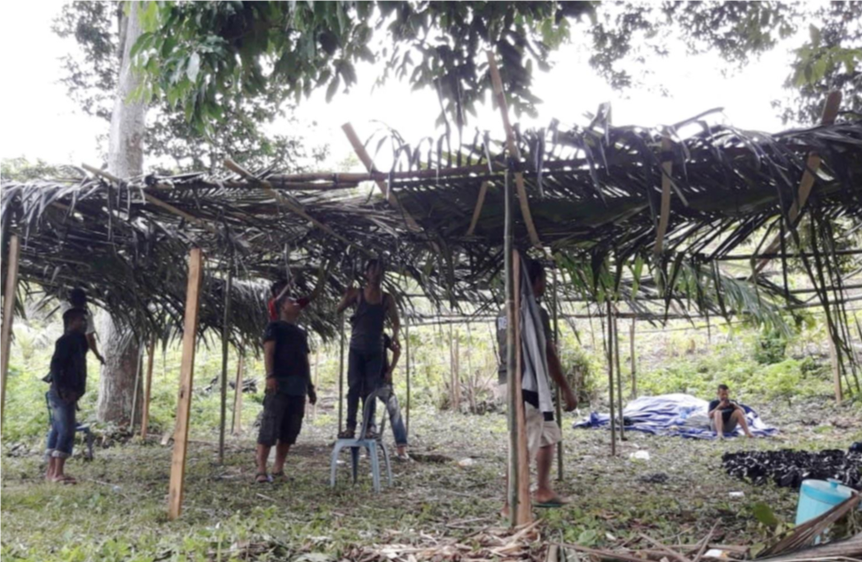
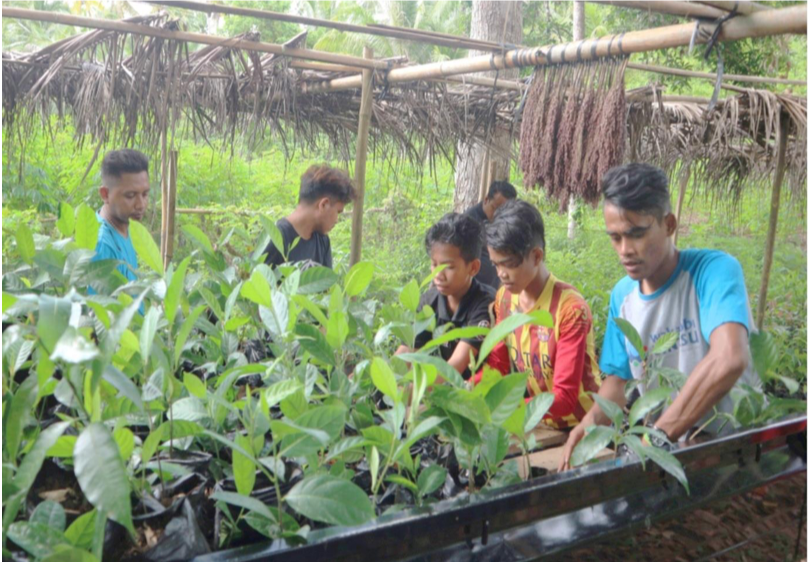
The process of creating a seed house together with members of the Horuo village youth organization and collecting seeds.
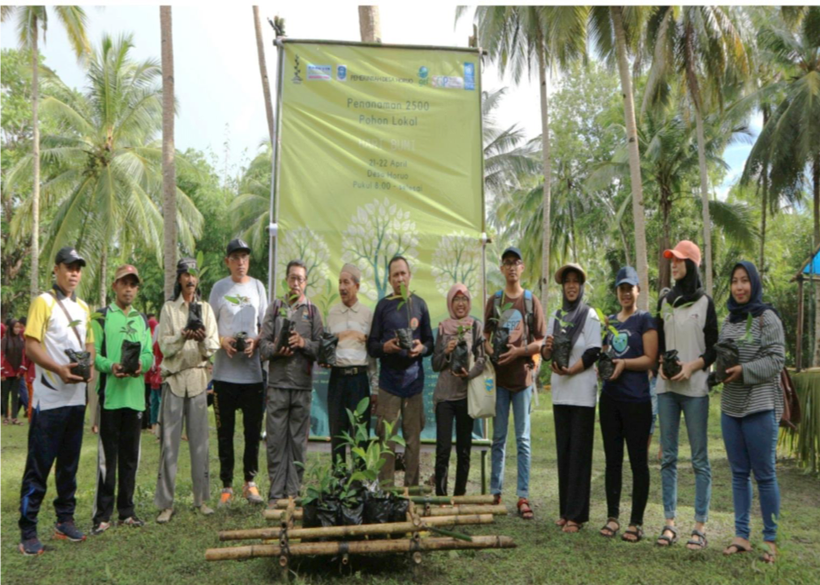
Planting 2500 trees in water source areas and riverbanks in Horuo Village.
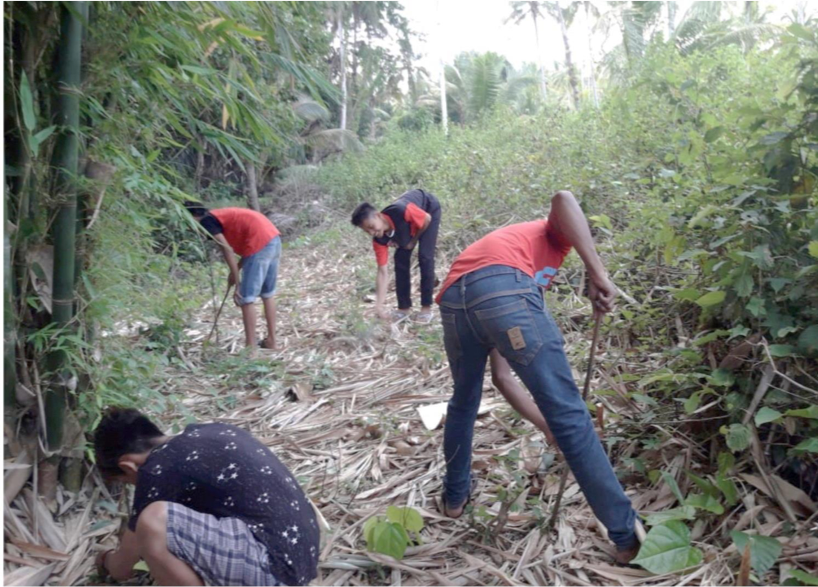
The process of maintaining and replanting trees.
Increasing community food security through better and more sustainable agricultural activities..
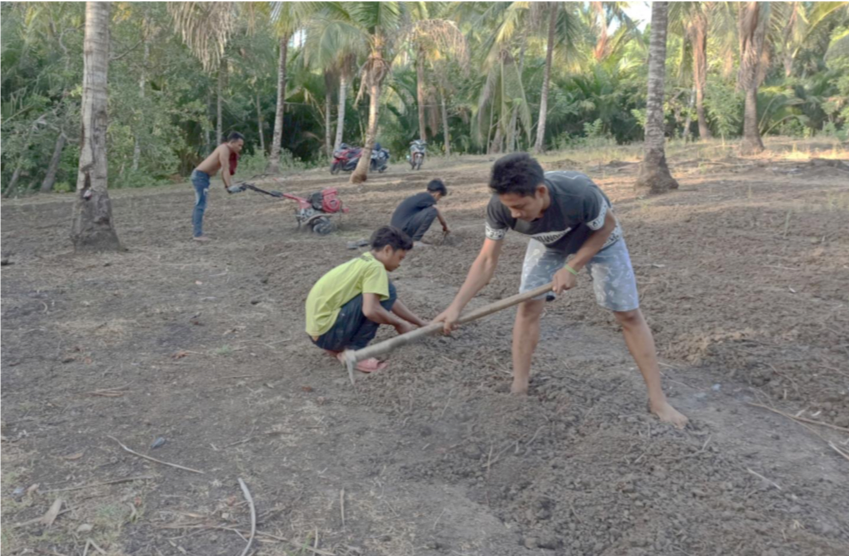
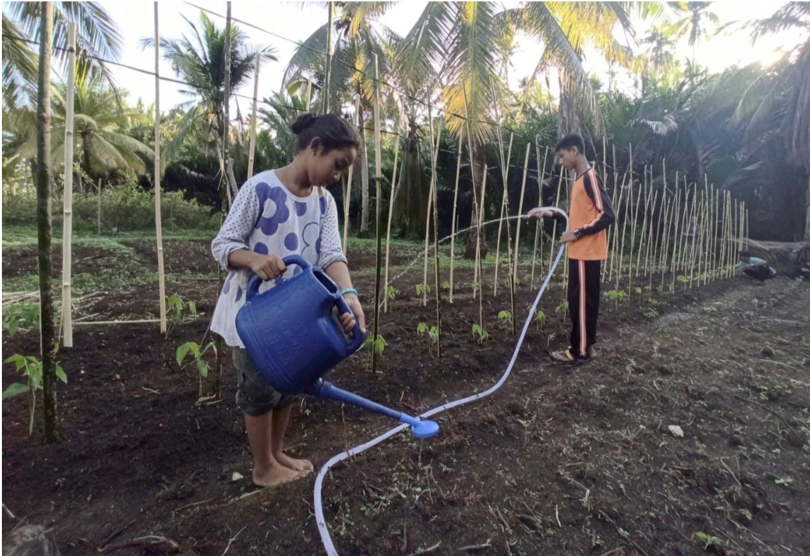
Creating demonstration plots based on environmentally friendly agriculture with groups of young people.
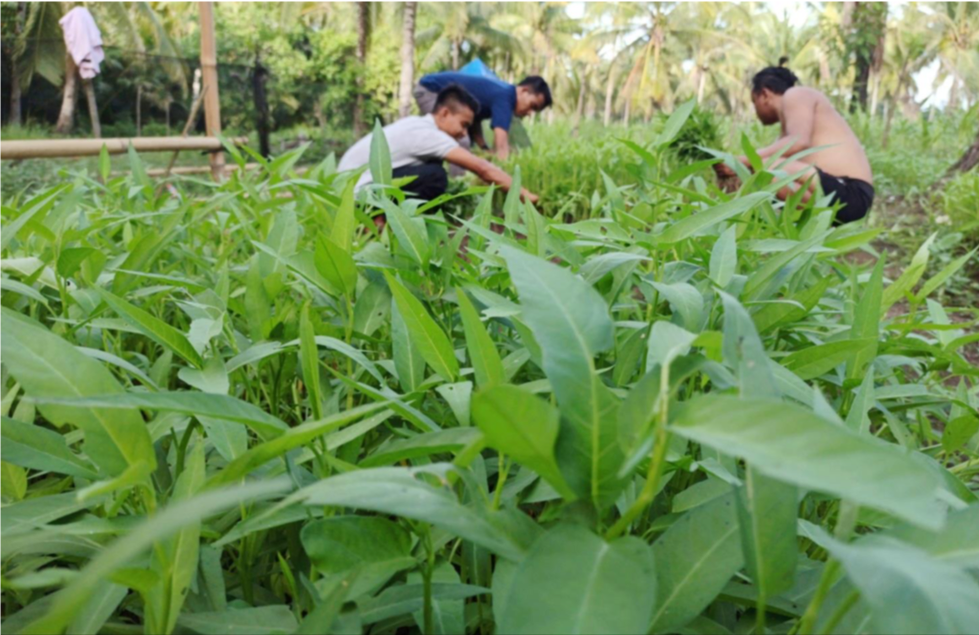
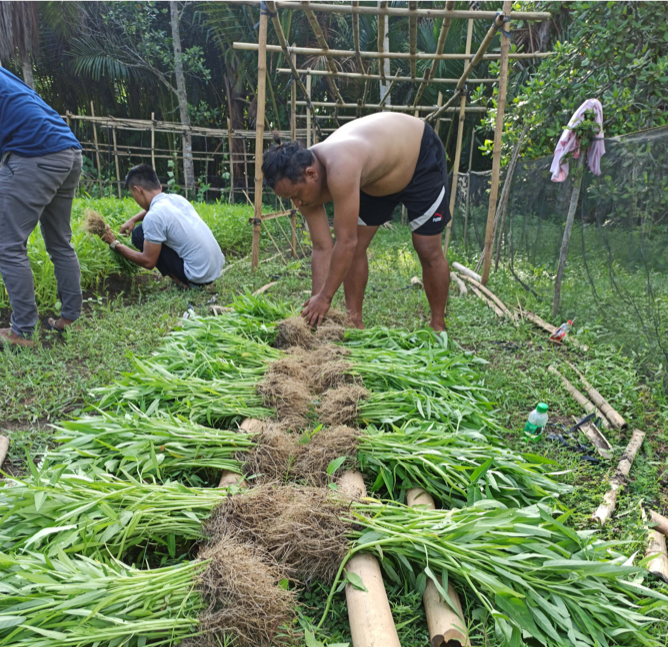
The first harvest process from an environmentally friendly agricultural demonstration plot.
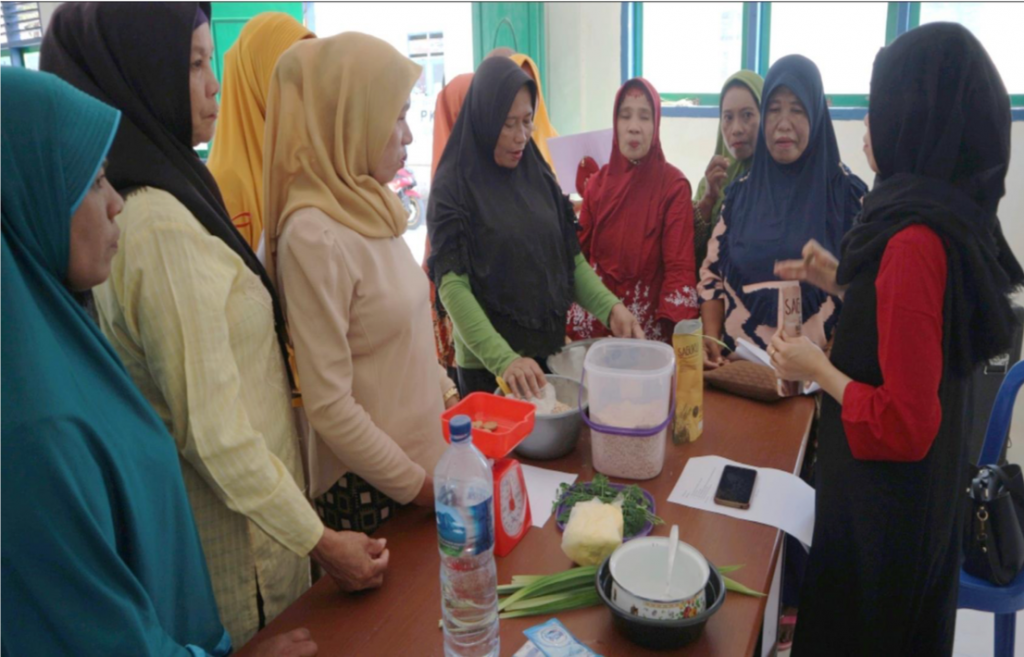
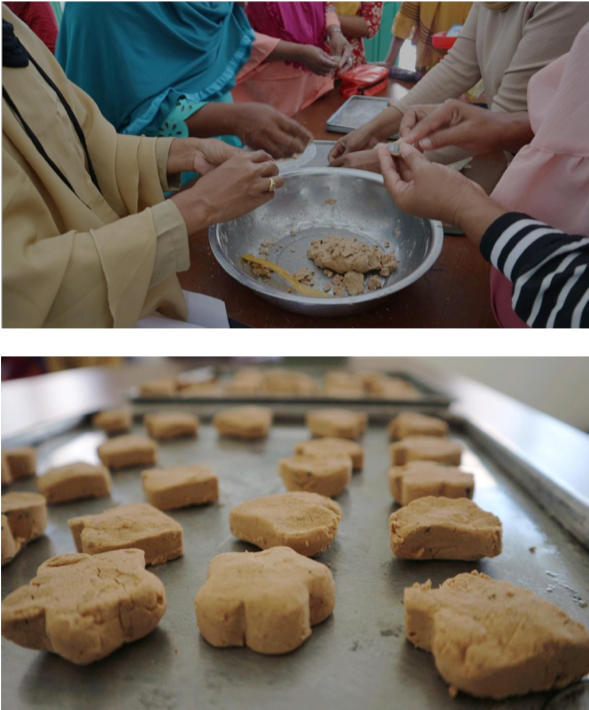
Training on diversification of sago-based products (sago moringa biscuits).
Increasing knowledge and breakthroughs in the agricultural sector to support increasing community food security through collaboration with various parties who have related competencies, and revitalizing local knowledge about natural resource management.
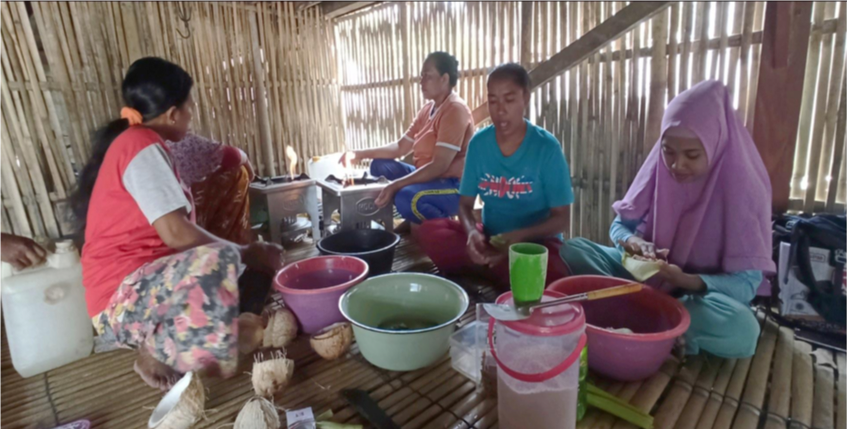
Practice making food preparations based on local food with women's groups.
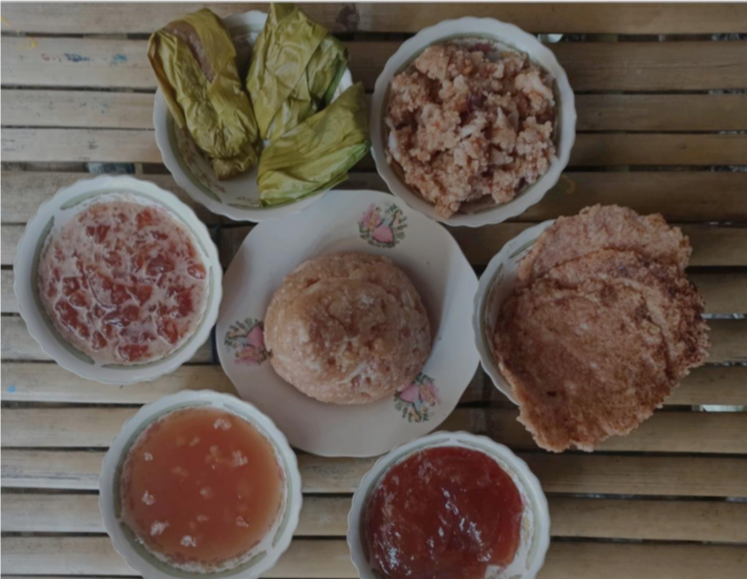
PROJECT OUTCOMES
- There is a memorandum of understanding regarding the protection of water source areas and riverbanks.
- Implementation of planting of 2500 local trees (2.5 Ha) in water source areas and riverbanks involving 368 people from various parties.
- There is a local food demonstration plot based on environmentally friendly agriculture measuring 20 x 30 meters which is managed jointly by partners and one of the community members.
- There is an environmentally friendly agricultural demonstration plot measuring 15 x 10 meters which was created together with a group of young people.
- There is documentation about the main local food cultivation of the Horuo village community.
- There is a transfer of knowledge between fellow group members in local food processing which is carried out simultaneously when practicing local food processing.
- There is a school (MTs Mantigola) that will use the module.
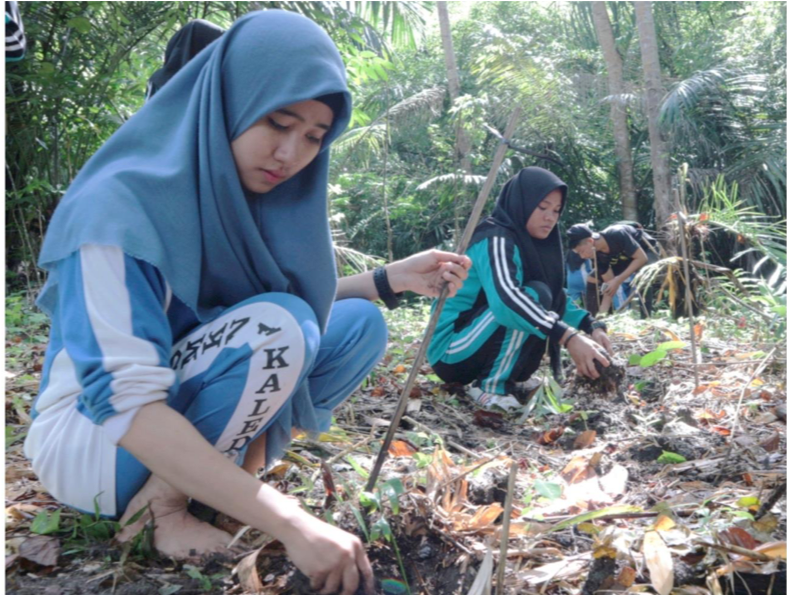
PROJECT OUTCOMES
- Implementation of several types of training.
- Training in making wood-saving stoves for the people of Horuo village and produced 32 stove units.
- Training on diversification of sago-based products (sago moringa biscuits).
- Training on making nata de coco.
- Environmentally friendly agricultural training.
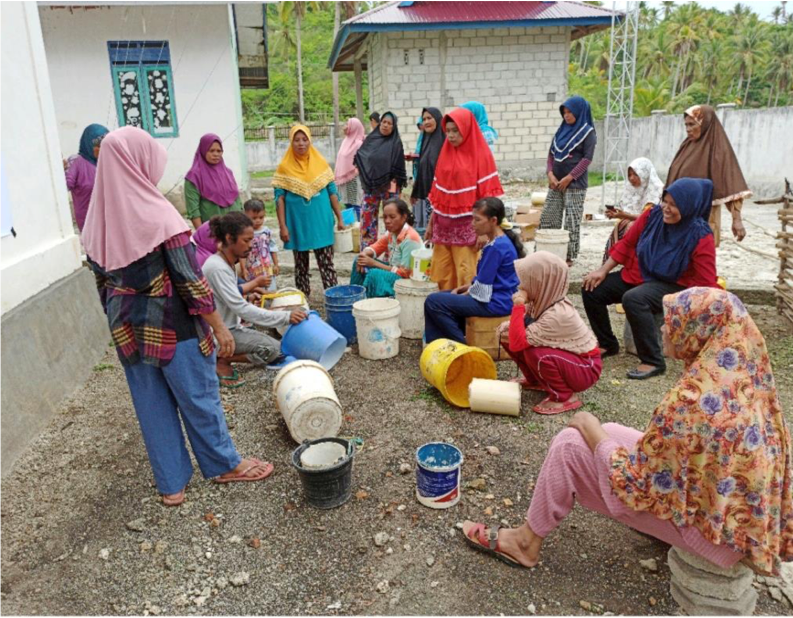
PROJECT IMPACT
- There is awareness among land owners about the importance of protecting spring areas and riverbanks.
- Encouraging the existence of customary rules related to the protection of spring areas and riverbanks.
- There is interest from the community in also planting trees, as evidenced by the demand for seedlings to be planted on their own land.
- One school wants to use a module on local food and is committed to creating an environmentally friendly school garden as a learning medium for students and the surrounding community.
- There is public awareness that the agricultural practices inherited from parents have been environmentally friendly agricultural systems, for example storing plucked grass between plants to maintain soil moisture.
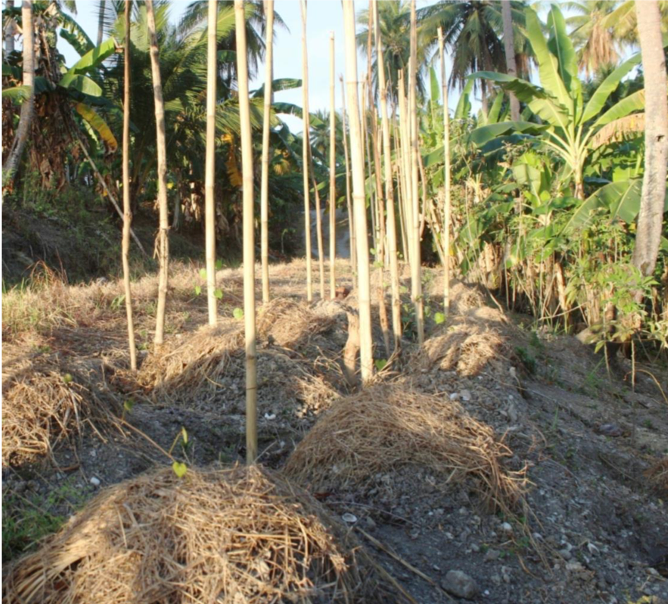
PROJECT IMPACT
- Increasing the skills of people who take part in training.
- Breeding local food types as a guarantee of the availability of local food variants through local food demonstration plots.
- The decline in felling of sago (thatch) with the aim of expanding agricultural land, because thatch has become a source of food.
- There is mutual exchange of knowledge from women's group members regarding local food processing through joint practices in local food processing.

BEST EXPERIENCE
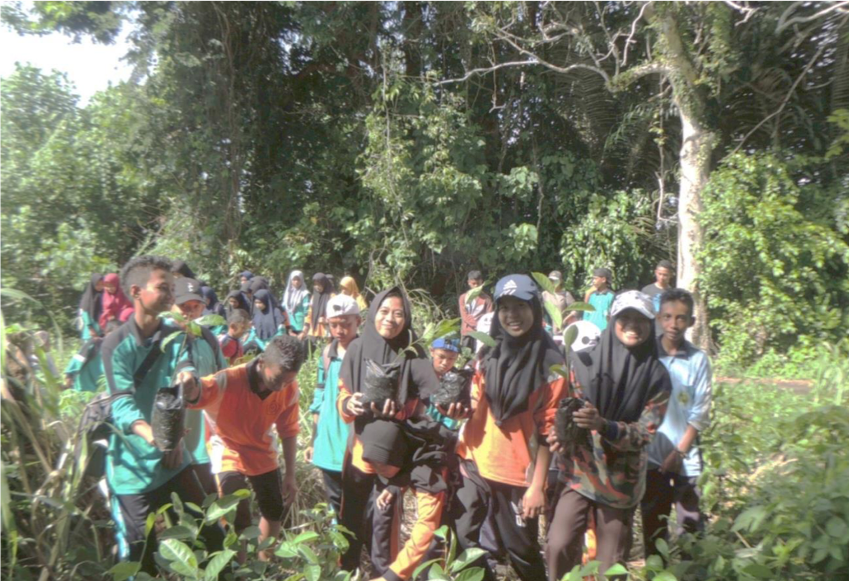
The involvement and enthusiasm of many parties in tree planting activities in spring areas and riverbanks.
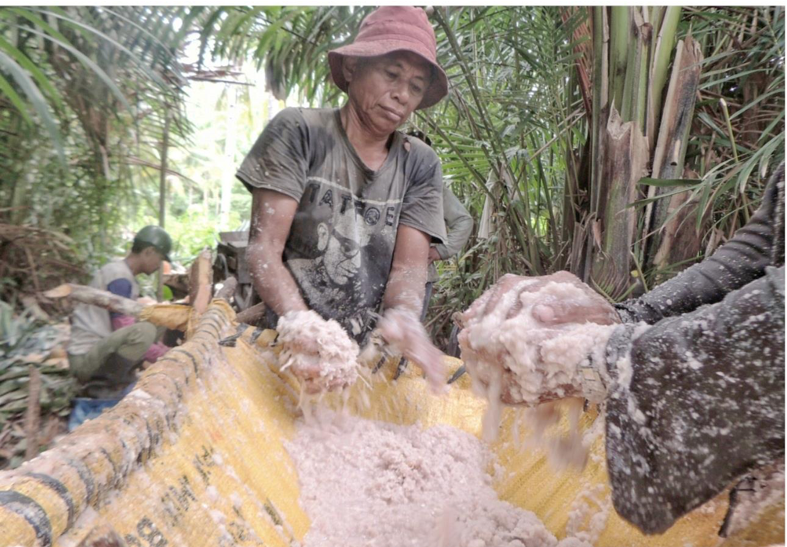
Documenting local food, even though there are still many shortcomings, is an extraordinary experience for us to document the wisdom of our ancestors in food security.
PROJECT SUSTAINABILITY
- There is concern from land owners, as evidenced by the fact that planted tree seedlings are not cut down and there are reports from land owners when dead tree seedlings are found on their land.
- There is a school (MTs Mantigola) that is willing and committed to using the module as a guide for local content learning at school and creating an environmentally friendly school garden as a learning medium for students and the surrounding community.
- Women's group members are willing to become resource persons for local food processing and take part in local food processing competitions.
- Communities who are partners in managing local food demonstration plots will continue by adding types of food to be replanted.
- There are training participants who produce moringa sago biscuits for market.
- There are group members who independently create their own vegetable gardens using an environmentally friendly farming system.
- There are community groups that are able to become sources for local food cultivation and processing.
Media and Publications
